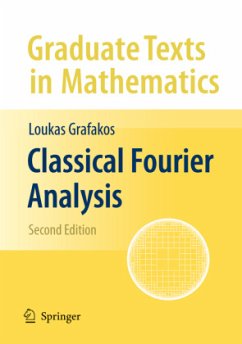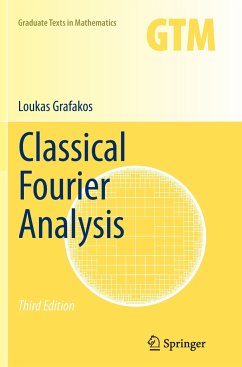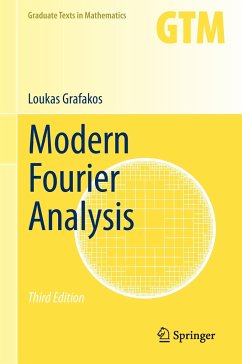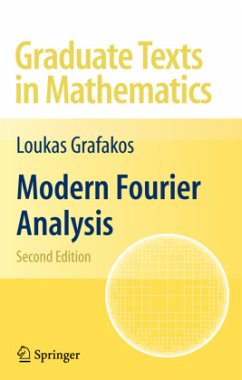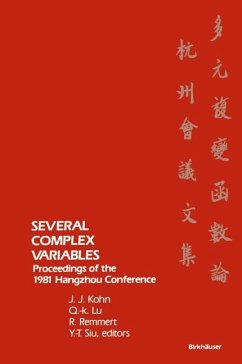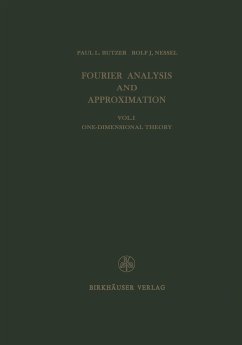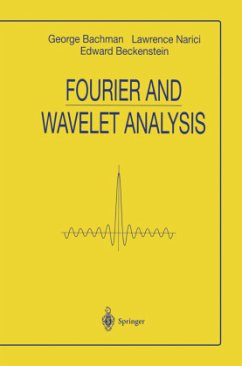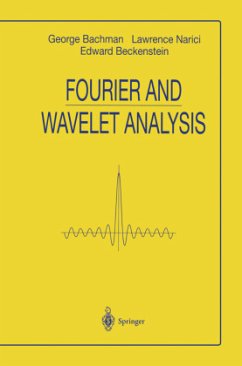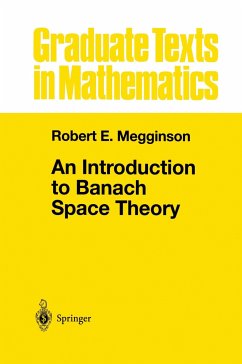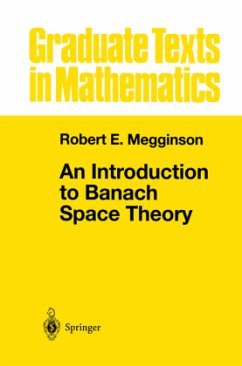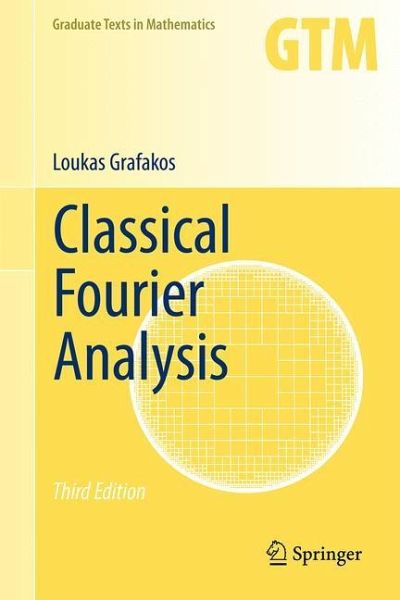
Classical Fourier Analysis
Versandkostenfrei!
Sofort lieferbar
54,99 €
inkl. MwSt.
Weitere Ausgaben:

PAYBACK Punkte
27 °P sammeln!
The main goal of this text is to present the theoretical foundation of the field of Fourier analysis on Euclidean spaces. It covers classical topics such as interpolation, Fourier series, the Fourier transform, maximal functions, singular integrals, and Littlewood-Paley theory. The primary readership is intended to be graduate students in mathematics with the prerequisite including satisfactory completion of courses in real and complex variables. The coverage of topics and exposition style are designed to leave no gaps in understanding and stimulate further study.This third edition includes ne...
The main goal of this text is to present the theoretical foundation of the field of Fourier analysis on Euclidean spaces. It covers classical topics such as interpolation, Fourier series, the Fourier transform, maximal functions, singular integrals, and Littlewood-Paley theory. The primary readership is intended to be graduate students in mathematics with the prerequisite including satisfactory completion of courses in real and complex variables. The coverage of topics and exposition style are designed to leave no gaps in understanding and stimulate further study.
This third edition includes new Sections 3.5, 4.4, 4.5 as well as a new chapter on "Weighted Inequalities," which has been moved from GTM 250, 2nd Edition. Appendices I and B.9 are also new to this edition. Countless corrections and improvements have been made to the material from the second edition. Additions and improvements include: more examples and applications, new and more relevant hints for the existing exercises, new exercises, and improved references.
This third edition includes new Sections 3.5, 4.4, 4.5 as well as a new chapter on "Weighted Inequalities," which has been moved from GTM 250, 2nd Edition. Appendices I and B.9 are also new to this edition. Countless corrections and improvements have been made to the material from the second edition. Additions and improvements include: more examples and applications, new and more relevant hints for the existing exercises, new exercises, and improved references.




